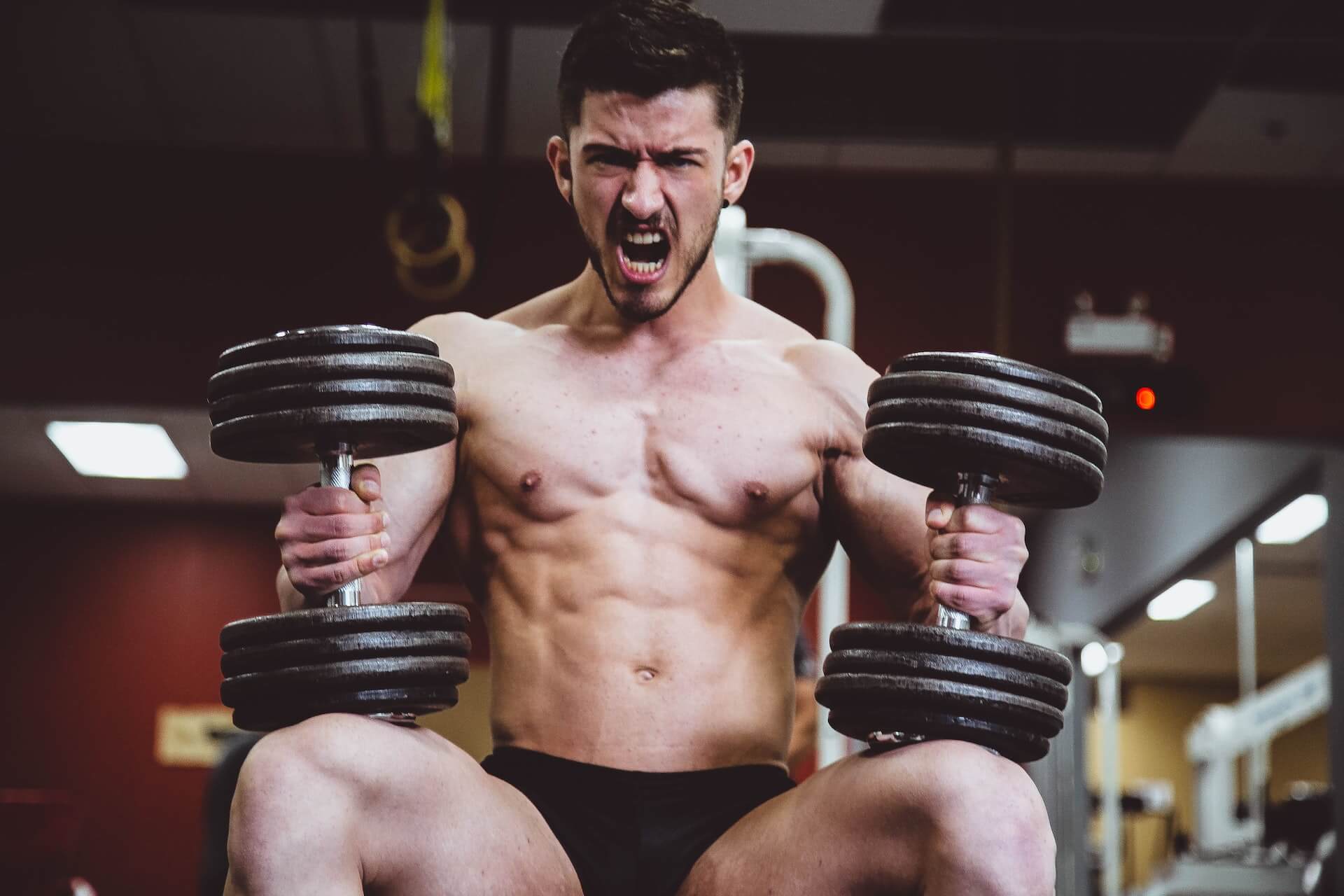As physical inactivity becomes more prevalent in our society, it’s important to understand the potential consequences on our bodies, including our sexual health. Not only can a lack of exercise lead to PE, but it can also contribute to a host of other health issues, such as obesity, diabetes, and heart disease.
In this article, Shag Longer will delve into the available research on this topic and explore the potential ways in which a lack of exercise may impact sexual function. We’ll also discuss the importance of maintaining a healthy lifestyle to improve overall sexual health.
Can no (lack of) exercise really cause premature ejaculation?
First of all, let’s clarify what PE is. Premature ejaculation is when a guy ejaculates before or shortly after sexual penetration. A lot of men suffer from it and can be caused by a variety of things, like stress, anxiety, physical conditions like diabetes or high blood pressure, and even certain medications. So, with that being said, can lack of exercise cause premature ejaculation?
The answer is: no, not directly.
However, while there is limited scientific evidence to support the idea that being inactive directly causes PE, there are a few ways that exercise might indirectly affect sexual function. For example, being physically active can help improve cardiovascular health, which is important for maintaining healthy erectile function. Plus, being inactive can lead to obesity, which has been linked to sexual dysfunction in men.
The link between lack of exercise that can cause PE
A study from 2018 found that regular physical activity may be associated with longer-lasting sexual performance in men. The study included 250 participants ranging in age from 18 to 45 and found that men who exercised regularly had longer ejaculatory latency.
Specifically, men who jogged, cycled, or lifted weights for 40 minutes per day lasted an average of 5.5 minutes before orgasm, while men who walked less than 30 minutes per week lasted an average of 3 minutes. T
The study also found that 27% of men who did not exercise regularly reported experiencing premature ejaculation. These findings suggest that regular physical activity may be beneficial for sexual performance and may also help to reduce the risk of premature ejaculation.
Overall, while a lack of exercise may not directly cause premature ejaculation, it can definitely have an impact on overall health and well-being, which can indirectly affect sexual function.
That’s why it’s important to maintain a healthy lifestyle, which includes regular physical activity, to help improve sexual function and potentially reduce the risk of developing premature ejaculation. So, if you’re looking to up your game in the bedroom, hitting the gym or going for a run might be a good place to start.


How can exercise help with premature ejaculation?
A study conducted in 2014 found that pelvic floor muscle exercises can be an effective treatment for premature ejaculation. The study included 40 men who had previously tried various treatments for PE, including behavioral therapy, antidepressants, and creams, without success. These men were trained to perform pelvic floor muscle exercises three times a week for 20-minute sessions over a 12-week period.
The results were promising, with 82% of the participants experiencing an improvement in their ability to delay ejaculation. At the beginning of the trial, the average participant ejaculated within 32 seconds, but by the end of the trial, the average time had increased to almost 2.5 minutes.
Pelvic floor exercises, also known as Kegel exercises, are commonly used to treat incontinence, but they can also improve sexual function by strengthening the muscles involved in the control of urine flow. These muscles are also involved in sexual function, so strengthening them through regular exercises may improve sexual performance.
It is worth noting that these exercises should be performed regularly to see a difference in PE symptoms. One of the advantages of using Kegel exercises to treat PE is that they are a natural and cost-effective treatment option with little to no risk of side effects.
Premature ejaculation exercises
Next, we’ll take a look at some actionable exercises designed to help you last longer in bed!
Kegel exercises
As mentioned earlier, pelvic floor muscle training can be very beneficial if you suffer from early ejaculation.
You can simply squeeze and release the muscles you normally use to stop urinating to conduct Kegel exercises. It’s crucial to keep in mind to release the muscles after each contraction. These exercises can be performed whenever, anywhere, and without anyone noticing.
How often?
It is typically advised to perform three sets of 10 repetitions each day.
For a detailed guide on training your pelvic floor muscles, check out our detailed article on kegel exercises for premature ejaculation!


Squeeze technique
The squeeze technique is a method used to help delay ejaculation in men. It involves pulling out of the partner’s vagina or anus just before orgasm and gently squeezing the tip of the penis between the fingers to reduce arousal and delay ejaculation.
This technique may be effective in helping to control premature ejaculation over time, but it requires good communication and cooperation between partners. If both partners are open to trying new techniques and are supportive of each other, it may be worth giving the squeeze technique a try.
If you and your partner fancy giving this a try we have a detailed guide on how to use the squeeze technique!
The start-stop technique
The man is sexually stimulated up to the point of climax, at which point he stops and lets himself relax until the impulse to ejaculate passes. This process is repeated several times until the man wants to ejaculate. Doing this often will tighten your self-control.
Other exercises to help premature ejaculation
As well as the exercises designed to help delay ejaculation time, there are also some other exercises that can help you last longer during sexual encounters:
Squats
If you are looking for exercises to help with premature ejaculation, you may want to consider adding squats to your workout routine. Squats, particularly front squats using a barbell, may increase testosterone release, which can improve sexual function.
In addition, regular cardiovascular exercise can help to improve erectile function, and erectile dysfunction is often a contributing factor to secondary PE (acquired premature ejaculation).


Stretching
Stretching may impact premature ejaculation (PE) by boosting blood flow to the muscles, which could enhance sexual performance. Improved blood flow can help to increase sexual arousal and potentially reduce the risk of PE. Stretching could aid in easing tension and stress, both of which have an effect on sexual function.
Stretching exercises come in a variety of forms that can be included in a fitness routine, such as:
Hamstring stretch
Stretch your hamstrings by crouching down and extending one leg in front of you while bending the other, keeping the other foot flat on the ground. Maintain a straight back while bending forward from the hips until you feel a stretch in the back of your extended leg. Switch legs after 15 to 30 seconds of holding.
Quadriceps stretch
For balance, place yourself near a chair or wall. Holding your foot with the same hand, bend one leg. When you feel a stretch at the front of your thigh, keep your knees close together and extend your bent leg. Switch legs after 15 to 30 seconds of holding.
Shoulder roll
Stand with your feet shoulder-width apart. Lift your shoulders up to your ears and then roll them back and down. Repeat this motion for 10-15 reps.
Note: Always stretch slowly and softly and avoid forcing your body into a position that hurts or feels uncomfortable.
Yoga
Yoga’s capacity to lower stress and enhance physical and emotional relaxation makes it a viable treatment for PE. Premature ejaculation is often brought on by anxiety and stress, can be improved overall by practicing yoga.
Yoga may also help to strengthen and control muscles, especially the muscles in the pelvic floor, which may be beneficial for enhancing sexual function and performance.
In addition, yoga practices such as pranayama (breathing techniques) and meditation may help you last longer in bed by increasing self-awareness and mindfulness, which could improve emotional control and potentially help with premature ejaculation.


What to do if these exercises don’t work?
There are many potential causes of premature ejaculation (PE), and treatment options will depend on the underlying cause of the issue. If you are experiencing PE and are unsure of how to address it, it is always a good idea to consult with a healthcare professional. They will be able to evaluate your specific situation and recommend the most appropriate treatment options based on the cause of your PE. They may recommend treatments such as:
- Mindfulness to help premature ejaculation
- Therapy or seeking a sex coach.
- Medications like SSRIs


Conclusion
While a lack of exercise may not directly cause premature ejaculation, it can have an impact on overall health and well-being, which can indirectly affect sexual ability. Regular physical activity has been associated with longer-lasting sexual performance in men, and may also help to reduce the risk of developing PE.
Additionally, pelvic floor muscle exercises, also known as Kegel exercises, have been shown to be an effective treatment for premature ejaculation and may improve sexual control by strengthening the muscles involved in controlling urine flow and sexual function.
In summary, maintaining a healthy lifestyle, including regular physical activity, may help to improve sexual function and potentially reduce the risk of developing PE.








